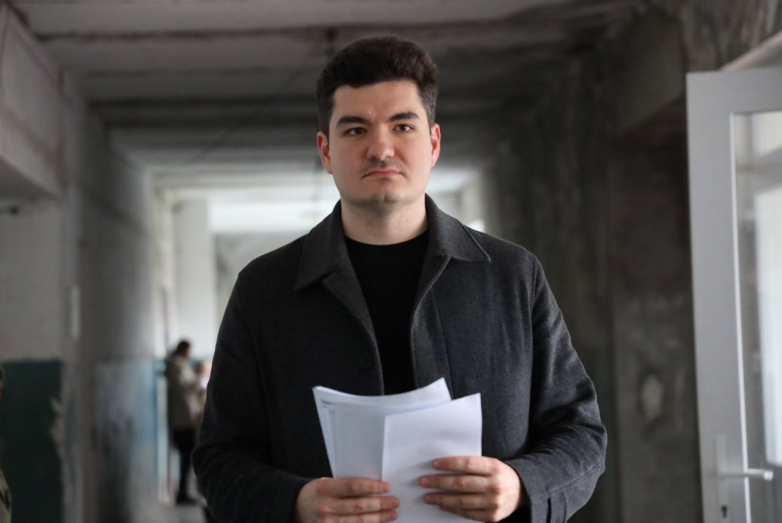WAC continues the medical examination project of students in rural schools of the republic. The first trip in 2024 took place in the village of Otkhara, Gudauta region.
Schazina Bganba
The Department of the World Abaza Congress on Education, Social Activity and Health (OSAZ), together with the Ministry of Health of Abkhazia, continues to carry out medical examinations of students and teachers of rural schools of the republic.
This time, a comprehensive health examination for the
purpose of prevention and early diagnosis of various diseases was carried out for 110 students and 15 teachers of the Otkhara Secondary School named after O.S. Demirdzhipa. Previously, they all donated blood for a general analysis and glucose level. On the day of the examination, they were given the results. According to the head of the OSAZ department, Izolda Khagba, the test results are satisfactory, however, cases have been identified that require additional examinations.
“The general health state of the children, according to our doctors, is not a cause for concern. However, here, as in all other schools where clinical examination has already been carried out, there are problems that require the attention of different experts, in particular, ophthalmologists. No matter how active children are at school, unfortunately, when they come home, they fill their leisure time with smartphones, not realizing the damage gadgets can cause to their eyes. The rehabilitation doctor also notes the urgent need to pay attention to the introduction of compulsory physical activity in the form of physical therapy (therapeutic physical education), so in many children not only in this school, but throughout Abkhazia as a whole, he diagnoses scoliosis, kyphosis and other changes, which will have an extremely negative impact on children’s health in the future,” Khagba said.
The examination of students and teachers was carried out by specialists of a wide range of profiles: neurologist Saida Kondzharia, pediatricians Angelina Otyrba and Natalya Rogova, endocrinologists Renata Ankvab and Radmila Gunia, ENT doctor Veronica Chalmaz, cardiologist Irina Fet-ogly, ultrasound diagnostics doctor Larisa Gabova, urologist David Smyr, rehabilitation specialist Arzadin Agrba, ophthalmologist Anzhela Dzhodzhua, nurses Alina Tarba and Inalita Berzenia.
This time the range of volunteers has also expanded. They were students of the Sukhum Medical College and other concerned young people who, on their own initiative, contacted the organizers, desiring to take part in the medical examination. According to medical college student Madina Kurt-ogly, participation in such events is a good experience for a future physician and, in addition, a chance to observe how specialists and patients interact.
“By assisting doctors, we see how they work with children, conduct diagnostics and what treatment they prescribe. It’s important for us to see all this in practice,” Madina Kurt-ogly shared her impressions.
OSAZ department specialist Naur Khishba expressed gratitude to all participants for their help.
“Thanks to the fact that each participant in the medical examination treats the work entrusted to him with complete seriousness and responsibility, the labor intensity of our activities is reduced significantly. We mean not only doctors and volunteers, but also teachers and parents. Their attitude to work is an indicator of the demand for our activities in general,” says Khishba.
Today, the Otkhara School employs two nurses who can provide emergency medical care when students contact them. However, as the head teacher of education, Saida Abidzhba, said, a full medical examination of children at school has not been carried out for fifteen years.
“During the day, our children were examined in all offices, and completely free of charge. No matter how hard we try, no matter how hard our parents try, when going to a medical facility in one day, a child would not be able to visit more than two or three doctors. It is very important for us that we don’t have to go somewhere, wait in line, etc. Everything is organized at a level that inspires absolute confidence,” she said.
Medical examination of students in rural schools in Abkhazia is a project of the World Abaza Congress, implemented with the support of the Ministry of Health of the Republic. Over the past year, 1,500 students from 19 villages were examined as part of the project.

to login or register.